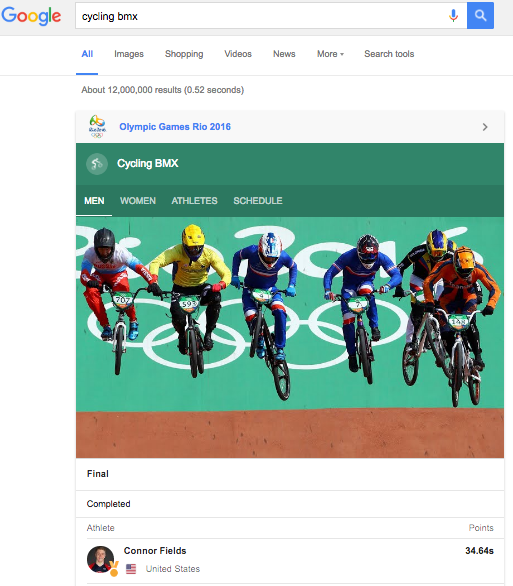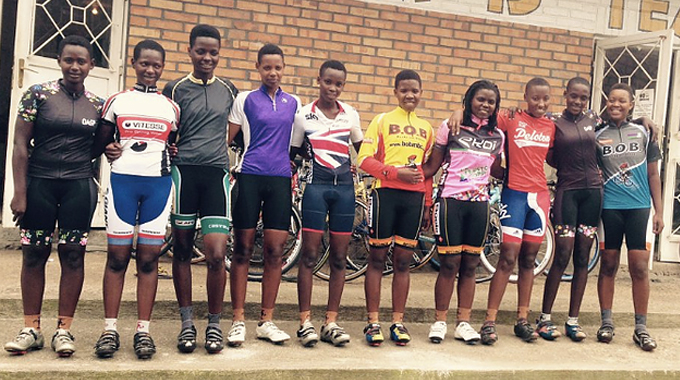
Data revealed by the geekatrons at Google shows that female athletes received a greater share of search over the course of the Olympics than male athletes.
Though admittedly not particularly detailed, the data demonstrates that women received a higher volume of search in 29 out of 40 different sporting events.
The top sports for women’s searches were rhythmic gymnastics and synchronised swimming, but BMX was ranked third – with 94 per cent of searches relating to women and just 6 per cent men. Apparently in golf, basketball and swimming, men are just more interesting.

Mariana Pajón
Road cycling, which we know to be a pretty male dominated world, had a 72 per cent search rate for women, and 28 per cent for men, whilst track cycling swung just in the favour of men at 48/52.
Of course, you could break down each sport and look for the reasons why. In road cycling, the BBC showed the women’s race in full, whilst the men’s race coverage was largely punctuated with other sports. We can’t say if that trend was repeated in other countries but it seems unlikely coverage was uniform.
Searches around Dutch rider Annemiek van Vleuten might have been high after her brutal looking crash, too – but there were crashes in the men’s race as well. The women’s race did have the exciting spectacle of Mara Abbott’s breakaway, so perhaps it just put the spotlight on more interesting and searchable characters. It would be difficult to do this for every sport listed and it’s probably fair to say that these individual factors are likely to balance each other out.
Another potential reason for women receiving more searches could be that people know less. Women’s sport is given less air time and media coverage. Therefore, the public (and in many cases the reporters) have significantly more holes in their knowledge, which call to be answered by Google. If this is the reason, then the data still shows us that people want to know more about women’s sport – which is a pretty neat piece of information for us to deliver to TV channels and mainstream press.
Finally – elephant in the room: you could argue that the searches came largely from individuals more interested in enjoying the aesthetics of the athletes than exploring their careers and athletic prowess. That’d be a real shame if it were true, but it doesn’t do a thing to reduce the strength in the argument that these figures show that people are interested in women’s sport.
Perhaps, with these results in mind, Google will consider placing women’s results on the front page of their custom Olympic search pages, as opposed to always favouring the men’s. Based on data of course.

You might also like…
The Reaction to Nike’s Revealing Tennis Dress and Sexism in Cycling
5 Issues in Professional Women’s Cycling More Important Than THAT Kit
Why Sponsorship is Essential to the Growth of Women’s Road Cycling





